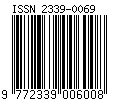The Impact of Halal Supply Chain Implementation on The Purchase Intention of Cosmetics Among Generation Z Customers
DOI:
https://doi.org/10.19184/bst.v12i4.53074Keywords:
Cosmetics, Gen Z, halal supply chain, SEM-PLSAbstract
The development of the cosmetics industry in Indonesia has shown growth in line with changes in lifestyle, particularly among the younger generation. As a generation that has grown up with broad access to technology and information, Gen Z possesses a heightened awareness of the composition and production processes of the cosmetic products they use, including the halal label, which is one of the main preferences for Muslim consumers. The implementation of a halal supply chain is an effort to ensure the halal integrity of the products used. Unfortunately, just a few studies have explored the factors driving Gen Z's purchase interest in cosmetic products that adopt a halal supply chain.This study aims to explore and gain deeper insights into these factors so that various stakeholders involved can determine appropriate strategies to meet these needs. Various variables and indicators were employed in this research using the Structural Equation Model Partial Least Square (SEM-PLS) model to identify the factors that most influence Gen Z's purchase interest in cosmetic products adopting a halal supply chain.The results of the study indicate that, after the variables of packaging and halal labeling, the product storage variable becomes the most influential factor in Gen Z's purchase interest. Therefore, greater attention is needed to ensure the implementation and quality of this variable within the halal cosmetics supply chain.
Downloads
Downloads
Published
Issue
Section
License
Copyright (c) 2024 Made Ranjani Dharmapatni, Argya Fauziah Tansy, Zetira Barges, Nursabila Nursabila, Vainzela Dwi Amanda Yordan, Iwan Sukarno, Resista Vikaliana

This work is licensed under a Creative Commons Attribution-NonCommercial 4.0 International License.



